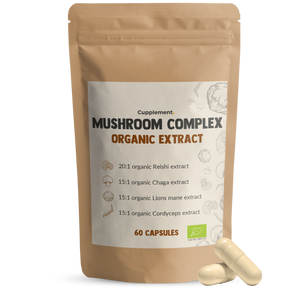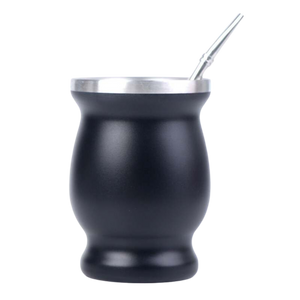
Coffee myths
Caffeine is bad for you and from coffee dry you out, I call these coffee myths. There is a lot to read about the effect of caffeine on your body. The most famous stories are about the negative effects of caffeine on your health. But what is actually true about that? In this blog, the four most famous coffee myths are discussed. Because coffee has many more benefits than you think.
Myth 1: Coffee causes dehydration
A while ago, a study showed that people who took caffeine produced 50% more urine. Because of this, some people started drinking a huge amount of water after every cup of coffee. Drinking a lot of water is always good, of course, but caffeine is not the problem. That's how it is. Caffeine ensures more blood flow to the kidneys, triggering the kidneys to produce more urine. But it can never provide so much blood supply that the kidneys start producing too much urine and it causes dehydration.
A follow-up study compared the effect of a low (239 mg) and high (537 mg) intake of caffeine. The high dose of caffeine has provided a short-term dehydration effect. So with an extremely high dose of caffeine, it can cause dehydration for a short period of time. The low dose of caffeine had no effect on dehydration. It was just moisturizing. Coffee is still a liquid drink. What can we conclude from this? Caffeine may cause the coffee you drink to leave the body through the urine. But it will not force other fluids to leave the body. The Energy/Foces blend contains 80-90 mg of caffeine. So with 2 cups a day there will be nothing to worry about.
Myth 2: caffeine causes insulin resistance
This is partly true, but certainly not that bad. Insulin ensures the absorption of glucose. Eating carbohydrates releases glucose into the bloodstream, causing blood glucose to rise. Insulin resistance means the insulin cannot absorb the glucose into the cell. This means that glucose will remain in the bloodstream and blood glucose will rise. When you drink coffee, insulin resistance will occur for a very short period of time. This is for good reason. Caffeine stimulates the expression of adrenaline. Adrenaline is needed at fight-or-flight situations. It makes sense for blood glucose to go up slightly for a short period of time. Energy is released in the body when adrenaline is involved. Your body needs to be ready. Adrenaline makes efforts feel less strenuous. So don't worry about the short rise in blood glucose.
Myth 3: Caffeine disrupts brain function
This is one of the biggest coffee myths, because it's quite the opposite. Because caffeine is a stimulant, people mistakenly assume that it has negative effects on the brain. These stimulating effects actually give positive results. Caffeine provides energy for the brain. As a result, there will be neurotransmitters increase. We need these for the normal functioning of the brain. If we have more neurotransmitters, we can use our brains more. Research by the VU shows that caffeine helps tired brain cells to communicate with each other. Caffeine therefore activates a larger part of the brain.
Myth 4: more caffeine = more energy
There are different types of energy drinks with huge amounts of caffeine. People should get more energy from it . However, several studies show that more caffeine than recommended does not provide more energy. The recommended amount per person is 3-6 mg per kg of body weight. If you consume more than this recommended amount, no additional benefits will occur. Caffeine does not literally give you energy. Caffeine provides a stimulation to the central nervous system for more output. It gives energy to a certain extent, but you don't get more energy if you take more than the recommended dose.
Conclusion
It can be concluded that caffeine, and therefore coffee, does have an influence on your health. Fortunately, the adverse effects only occur with the intake of an extremely high dose of caffeine. Make sure you don't consume more than the recommended amount of caffeine to get the most out of yourself. That should certainly work with 2 cups of Cupplement per day!
Popular products
-
Cupplement Frother

Handy frother for mixing additives to your coffee.
Order now -
Lions Mane

Lions Mane is known to help improve your concentration.*
Order now -
Matcha

Energy
Immunity
Matcha is een fijngemalen groene thee poeder dat traditioneel wordt gebruikt in de Japanse theeceremonie.
Order now -
Pill box

Introducing our sleek and convenient Pill Organizer – the perfect solution to streamline your supplement routine!
Order now -
Mushroom complex capsules

Discover the ultimate support for your overall well-being with our Organic Mushroom Complex in convenient capsules! Now with more active ingredients.
Order now -
Gourd set with bombilla

Handy frother for mixing additives into your coffee.
Order now



















